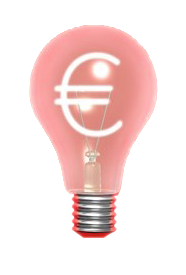A patent gives the right to forbid a third party to make or use a patented product, to put it on the market or to stock it or to apply a patented process. Of course the owner of the patent (patentee) can also decide to allow a third party to work under the patent against compensation. This allowance can be given exclusively or non-exclusively. In case of an exclusive license only the licensee has the monopoly to use the invention (if there are no other prohibiting rights). In case of a non-exclusive license the licensor may also grant licenses to others.
A license may also be granted with a restriction to a certain geographical area only. Generally compensation will have to be given for the patent license consisting of a lump sum and/or royalties, often a certain percentage of the sales price or in exchange of other patent rights or a combination thereof. By granting a license the patentee can also allow exploitation of his invention in countries where he is not able to do so himself.
The patent attorney of Amsterdams Octrooibureau Visser-Luirink B.V. (AOVL) is ready to give advice relating to licensing contracts, can advise on negotiating the conditions of licenses and take care of the drafting of a licensing contract.


